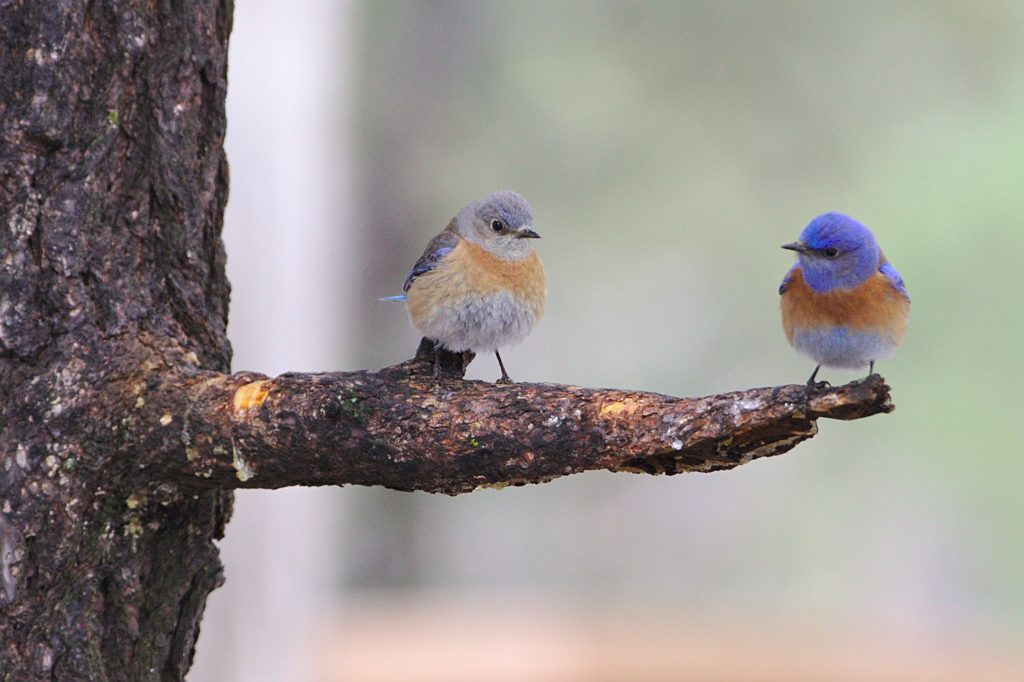For me, one of the greatest joys of spring and summer is birdsongs I can hear from my couch or on neighborhood walks, from morning until twilight. I’m no serious birder, but I’ve grown especially fond of two common species in my area (hummingbirds and lesser goldfinch), not to mention crows and ravens (corvids are so darn smart!). Birds are some of our greatest animal neighbors and friends, giving us endless joy while taking literally nothing. Unfortunately, just like other animal species, birds are under threat from human influence. Since 1970, more than 3 billion birds have disappeared from North American skies—an average decrease of 29%, according to a chilling 2021 study. This represents a decline of not just endangered species, but of common backyard bird species, for the first time in history. But there are many ways you can actively support birds by making small changes in your daily life—let’s get to it.
Look for Bird Friendly(R) Coffee
It’s likely you’ve heard about Fair Trade or Rainforest Alliance certifications—but have you heard of Bird Friendly? Many coffee growers cut down rainforests to raise coffee plants. This increases the crop yield, but it destroys the habitat of countless animal species, including many native and migratory birds. Over 42 species of North American birds winter in tropical rainforests, which means they’re especially vulnerable to this practice. Bird Friendly coffee is organic, fair trade, and shade-grown, helping to preserve the ecosystem. As a delicious bonus, slowly-raised coffee beans have a richer flavor! If you have a local cafe you love, ask them about buying Bird Friendly coffee beans!
Bird proof your windows
Forget wind turbines—over 1 billion birds a year die from flying into windows in the U.S. and Canada. To a bird, the reflective surface of glass looks like continuation of space. At night, brightly lit windows attract and kill migratory birds. Simply install outdoor bug screens that eliminate the reflection and cushion the contact—you can even paint over the glass using non-toxic paint. Be sure to close your curtains at night or turn down the lights.
Plant native plants
Although birds are resourceful creatures, there isn’t enough food or shelter left in the wild for these guys. In the past decades, tens of millions of acres of land has been developed in the U.S. Turn your lawn—essentially a desert for most species—into a bird-friendly rest stop with native plants. Shrubs are a particularly nice choice for birds, as they provide shade in summer and warmth in winter, nectar, berries, insects, and leaves. They may even brush up against moist leaves for a quick shower! Holly, juniper, lilac, dogwood, and blueberries are some great choices. For flowers, try sunflowers, cosmos, zinnias, and more. Don’t use pesticides (natch) so that native insects and pollinators too can flourish.
Reduce your plastic footprint
I made a huge leap in reducing my plastic waste after a screening of Albatross documentary in my city in 2017. Plastic waste kills countless birds who mistake it for food or become entangled in it. The fact is, no one can be sure where their garbage ends up: the ocean plastic in Southeast Asia is full of waste from North America and Europe, the developed nations that supposedly have control over their waste management.
Stop noise pollution
What do leaf blowers, electric lawn mowers, power washers, and fireworks have in common? They’re all noise polluters that confuse and stress birds. Birds stressed out by noise pollution have a lower success of raising healthy young. Not to mention the fact that noise pollution bothers sensitive humans, pets, PTSD sufferers, and more. Talk to your neighbors about reducing yard noises that are contributing to the dramatic fall of backyard species. Celebrate Fourth of July and other holidays with candles, not fireworks!
Get more like this—Sign up for our daily inspirational newsletter for exclusive content!
__
Photo: Benoit Gauzere via Unsplash





